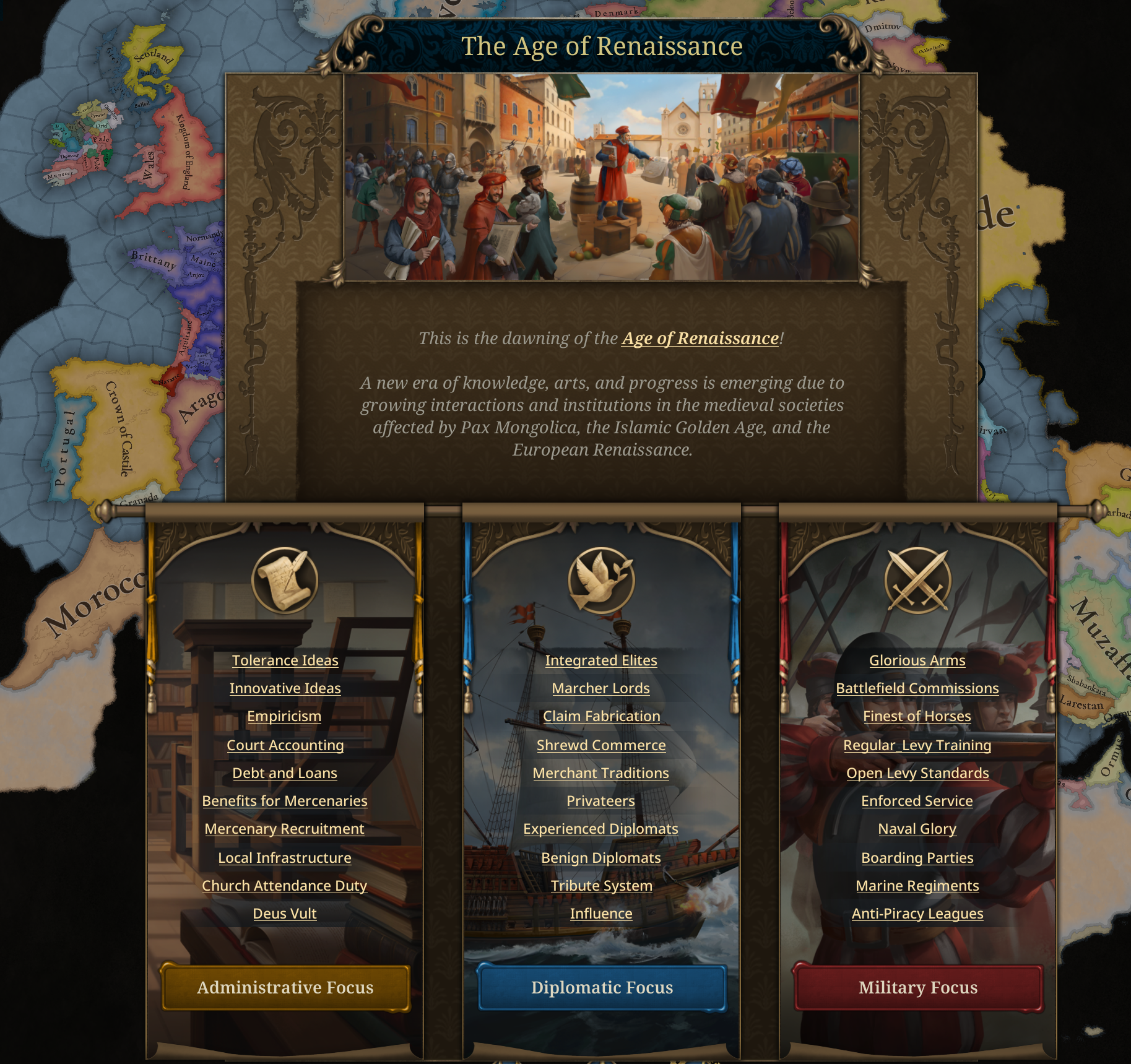I'm still seeing replies based around inaccurate first-impression reactions.
Three-pass reading and
reviewing official info sources are skills that need to be exercised more.
I think you are wrong specifically about Shun, as I remember doing a campaign for them where they had unique national ideas. I even double checked on the wiki- Dali and Miao and Yi also get unique ideas, while the others get the semi-generic Chinese ideas. But this is the sort of thing I'm talking about- national ideas help set apart the Chinese releasable that otherwise wouldn't exist. They don't deserve say unique Mandate of Heaven mechanics, but we would assume that each possible China formable would bring something unique to the table. when it comes to running the country. It also adds a lot more versatility in how to play the game if there's a reason to take each chinese releasable and have the form China in some new way.
zeruosi
did state that Shun has unique National Ideas. He worded it a little complex, but it was legible.
Except it didn't happen. And I can't think of very many cases where such cultural transitions did happen. Again, I'd argue that 'Russian culture' today is pretty much rebranded Muscovite culture. France still has cultural divides with the Brittanese and Occitan, they're just not talked about as much as say the Irish. Italy still has all it's cultural divides complete with unique dialects.
Again, I thinkt here's an argument for showing how culture changes over time, but I don't think 'unify culture group' handles this well in the slightest, to the point where not having it (and turned off by default) is better.
We're talking about a enormously ambiguous topic here, so it's going too far to say that something "didn't happen," especially in this example when there's clearly an active British identity that exists today, or a French identity, or a Russian identity. Of course there's going to be regional variation, but the political dynamics of the late 1700s and 1800s asserted broadening common cultural identities that, whether or not individuals felt more or less "French" or "German" on an individual basis at a given time, provided enormous social momentum to unify large groupings of people under both large-scale political movements
as well as common social customs on the household scale. A late game action to unify a culture group is perfectly within reason as an abstraction that provides a gameplay goal that remains in line with the game's thematic throughlines. EU5 isn't just about what did happen, it also stretches beyond to what
could be possible under the right conditions. Imagination is the other side of interpretation, and helps individuals form in turn greater personal connections with the game and the history it relates to us.
So it sounds like most countries would get less modfiers than their national ideas.
That said- I didn't know that 30 was the upper limit. That's a bit worrying in it's own right that the Ottomans might just be factually OP with all that. But I think that's a separate discussion.
Okay, I didn't realize that thank you.
I still don't think that addresses the complaint though- if say Wolgast only gets the 'generic' advances available to everyone, it doesn't give Wolgast any sort of unique identity playing through it, and you would have the same experience playing it as any other country in he HRE. If anything, spreading them out amongst religions and government types (which I think is something you should do, that sounds cool) makes them even less of a replacement for national ideas.
30
is not the upper limit of TAGS with unique content, that's not what he was saying at all, and a quick review through dev diaries would tell you that too. There will be ~60 TAGS with dedicated unique flavor at
release, but there will be more as the game expands after 1.0.
In all of this, you're either forgetting or ignoring Tinto's objective to move the gameplay away from purely bespoke identities and towards asserting identity through mechanical/structural dynamics, such as geography/distance, terrain, culture, and religion, and all of the other secondary human behaviors that follow.
As was the case in reality; conditions form the vast majority of human behaviors, not the other way around. Re-adopting things like bespoke idea groups or national Traditions would actively diminish Tinto's goal to
determine whether a game like EU5 is even possible; to determine this they necessarily need to
try it without backtracking.
There's nothing wrong with stating what you liked about EU4, but if you want to contribute (meaningfully) to EU5's broader conversation,
you will need to buy into what Tinto is trying to do. There are some things on which one simply cannot have both ways without risking the integrity of a vision, and threads like this do so much repetitive, wishy-washy "but if..." stuff that it
actively hampers the broader conversation from continuing along its natural progression to more advanced forms, to really dig into the very guts of what is and is not feasible.


